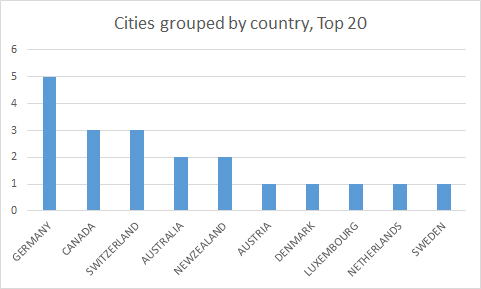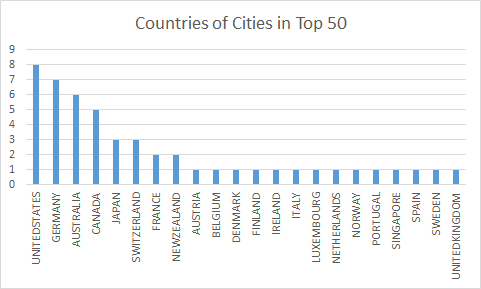Debate on education in Ireland is rarely if ever balanced and the current hassle causing discussion is linked to changes to the Junior cycle assessment. However, when you see people contributing to debate in a manner that includes “why don’t you leave it, oh yeah, you’d lose your three months’ holidays”, and “Overpaid, jobs for life”, my soul fades away a little people. Arguments of this nature are ignorant. In Ireland, probably led on by the UK, we don’t trust teachers.
We don’t trust teachers.
We devalue their work, reject their contributions to debate on their industry and suggest their sole motivation is for the easy life of three years holidays.
And then we throw Finland at them.
In not one column discussion changes locally and citing Finland as an example, do we highlight core features of the Finnish system that made it special. It is a highly equal system and its core objective was social equality. Becoming best in literacy and numeracy was a fringe benefit.
So here are some features of the Finnish system which perhaps Irish people should want to take on board.
There are practically no private schools.
All those rugby playing schools who populate the elite in Ireland? Gone. Nothing. I personally have no objection to this – I think it’s a good idea. What private schools exist in Finland are subject to a few rules which I don’t think would go down well here:
However, even in private schools, the use of tuition fees is strictly prohibited, and selective admission is prohibited, as well: private schools must admit all its pupils on the same basis as the corresponding municipal school.
Teachers have a great deal of autonomy.
Teachers are highly valued members of society and their contribution is recognised as valued. Certainly the Finns pay their teaching staff less than we do, but only ignorant people would fail to see that this is part of a whole. Living conditions in Finland tend to be better across the board and the last time I was there, it was also a noticeably less expensive place to live in. Comparing purely in monetary terms is something we really should learn not to do. However, one of the key things which they do not do in Finland is treat their teachers as leeches on the system. We could learn a lot from how the Finns in general treat their teachers. We are not anywhere close.
University education is free
If you are arguing that we should follow the Finnish method, then you can’t do it on a pick and mix basis. Our universities want to charge fees.
When David McWilliams suggests that teachers should be open to change, he is missing the point. They are interested in change. They are interested in change which they can effectively implement, which gives them autonomy. We don’t respect teachers in this country and we certainly don’t listen to them.
If I wanted to give an example, it’s worth looking at the respect rugby referees get from their players versus the respect, or lack of it, football referees get from their players. We, in Ireland, play football with our teachers, and not rugby.
Most of the debates on education in Ireland do not focus on the core objective of education. Nowhere, in any of the pieces I have read recently, does anyone advocating Finland, highlight the core objective of the Finnish system was to reduce social inequality. We want to emulate their numeracy and literacy and be the same as them without taking the hard decisions that they did. You could argue that yes, the Junior Certificate could be marked locally by teachers. But that doesn’t magically make us perform like Finland. It’s a cargo cult approach to education.
In the same respect, you cannot honestly claim to respect teachers if you 1) insist they’re only in it for the holidays 2) suggest they quit if it’s not all that and 3) impose change on them without understanding where their objections are coming from. They deal with the every day price of teaching and the every day challenges of it.
We also need a wider discussion on what we expect from our education system. We have tech companies complaining that our university grads are not skilled enough. We have business people screaming that we don’t have enough language skills while paying absolutely nothing for those skills which are apparently in short supply. We get fashionable demands like “every child must learn to code” and “we should be teaching kids foreign languages from the age of 4”. These are fads.
There are a bunch of core skills on which every other part of learning is built. We need to identify them and focus on them. Reading, writing and basic numeracy are amongst them. Critical thinking is another one which is sadly absent in a lot of discourse on education.
When I look at the education debate in Ireland, it strikes me as poverty stricken.
This article – which may or may not have formed some of McWilliams’ research for the piece linked above is more nuanced.
Even in Finland, the reforms have met objections from teachers and heads – many of whom have spent their lives focusing on a particular subject only to be told to change their approach.
Finnish schools are obliged to introduce a period of “phenomenon-based teaching” at least once a year. These projects can last several weeks. In Helsinki, they are pushing the reforms at a faster pace with schools encouraged to set aside two periods during the year for adopting the new approach.
I honestly believe that we need to re-assess how we consider education. I’m not sure that doing it within the framework of criticising teachers for blocking reform is the most effective way of doing so.



